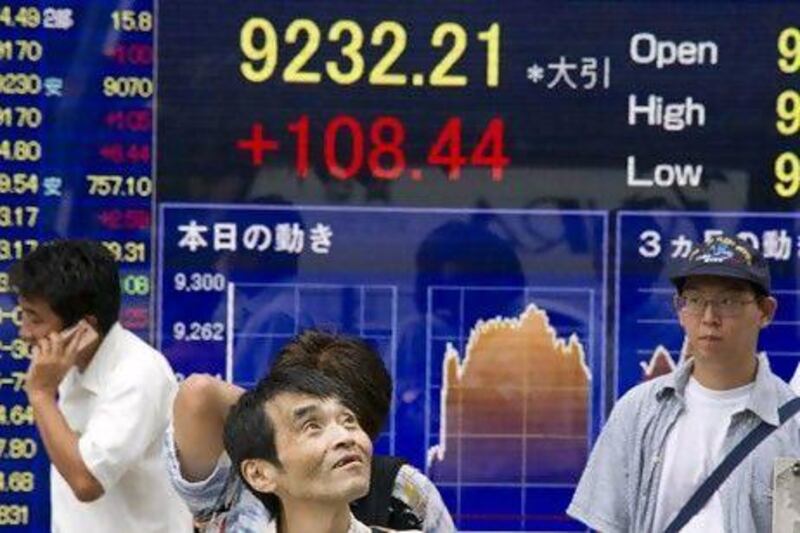The Bank of Japan unexpectedly pledged to plunge an extra ¥10 trillion (Dh468.48 billion) into the country's ailing banking system in a move aimed at saving its export-led economy from sliding into recession.
The action will involve the central bank raising the size of its bond and loan buying scheme to ¥80tn in an effort to keep long-term borrowing costs low.
It also lengthened the timeline for making the purchases, from June to the end of next year.
The yen slipped to a one-month low after the decision. Analysts said the move would help to weaken the value of the currency, which has weighed on overseas earnings.
The yen fell as much as 0.6 per cent after the decision before reaching 78.29 against the US dollar. "The Bank of Japan has followed the US Federal Reserve and the European Central Bank (ECB) into easing mode," said Giyas Gokkent, the chief economist at National Bank of Abu Dhabi.
"It has been struggling to rein in the strength of the yen and Japan's export machine, to some degree, has been impacted."
Equity markets gained ground after the action was announced. In Japan, the Nikkei 225 jumped 1.2 per cent to a four-month high and stock across the Asia-Pacific region edged 0.6 per cent up during trading. The European FTSE EuroFirst 300 was up a little in afternoon trading.
Stock markets have rallied by about 20 per cent since June as investors' hopes of stimulus action by regulators have been realised.
The Federal Reserve decided on Thursday to inject US$40bn (Dh146.91bn) each month into the US economy until jobs growth gains traction. The week before, the ECB unveiled plans to intervene in bond markets to help lower borrowing costs for struggling nations.
"Monetary easing will be supportive of asset and commodity prices, which is good news for [the GCC]," said Mr Gokkent.
"Investors are thinking central banks are debasing their currencies so they will look to commodities as a way of holding value."
Japan's strong currency has threatened to scupper the economy's recovery from last year's earthquake, tsunami and nuclear reactor catastrophe. The combination of the strength of the yen and weakening consumer demand in Europe and China have undermined Japan's export reliant model.
Global exports dipped 8.1 per cent in July, the most in six months.
Sales of vehicles, machinery and iron and steel goods helped push Japan's exports to the UAE up by more than 38 per cent to $2.39bn in the first three months of the year compared to the same period of last year, data from the Japan External Trade Organisation (Jetro), the government trade agency, shows. More recent data is not yet available.
It is too early to say whether the Bank of Japan's move would help push down the yen over a sustained period to boost exports, said Hiroki Matsumoto, the managing director of Jetro in the Middle East and North Africa.
"At the moment there are a lot of factors to consider," he said.
[ tarnold@thenational.ae ]





